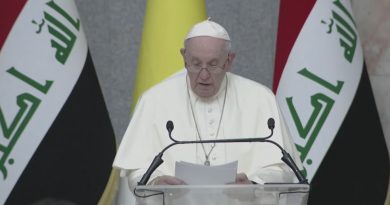Humanitarian Aid Blockades in Tigray Worsen Fragile Conditions
Nezar Nokrachi
Staff Writer
Ethiopia’s Tigray crisis has wreaked havoc on the nation, and new reports suggest that the conflict will only continue to get worse in the coming months. BBC News says that fighting between government and Tigray forces has led to roadblocks on key transport routes, resulting in a humanitarian aid blockade and rendering aid distribution to the region nearly impossible.
Grant Leaity, the United Nations’ acting humanitarian coordinator for Ethiopia, stated in a September press release that no relief trucks transporting food have been able to enter the Tigray region since August 22. Reuters adds that September 5 marked the first entrance of any of aid convoys since August. However, the existing food insecurity has worsened, as 5.2 million people in the region need urgent humanitarian aid, representing 90 percent of the area’s population. This includes 400,000 people who are already facing “famine-like conditions.”
Internationally, there has been a dispute over who is to blame for the supply disruption. Al Jazeera highlights that civilian humanitarian aid, distributed by USAID and the UN, has consistently been stolen by both Tigrayan rebels and Ethiopian troops. France 24 reports that both groups have routinely blamed each other for the barriers blocking aid convoys. Furthermore, both sides have been evasive in responding to questions concerning the blockade. Ethiopian Prime Minister Abiy Ahmed’s spokesperson told Reuters that the blockade points in question had been reduced but gave no specifics. A Tigray People’s Liberation Front (TPLF) spokesperson also dismissed a question about purposefully blocking and interfering with humanitarian aid.
The TPLF served as a leading member of Ethiopia’s coalition government from the government’s creation in 1991 to the end of the party’s rule in 2019. BBC News reports that the TPLF refused to join the new Prosperity Party headed by Prime Minister Abiy. The Tigray region then held its own set of elections, which were viewed by Abiy’s administration as an illegitimate act of defiance against the government. The New York Times adds that the government subsequently cut funding to Tigray, which provoked TPLF forces to attack a federal military base. Government forces were dispatched into Tigray, where the fighting has raged since.
Eritrea, a neighboring nation with which Abiy recently signed a monumental peace treaty that won him a Nobel Peace Prize, has transformed into an unlikely ally of the Abiy regime after years of quarreling with Ethiopia. It has leveraged its role as a historic antagonist of the Tigray region to participate in the government’s efforts against the TPLF. However, an Amnesty International study from earlier this year identified Eritrean soldiers, along with Ethiopian troops and other aligned forces, as responsible for horrific acts of sexual violence against Ethiopian women and girls. The U.S. has sanctioned the Eritrean Defense Force Chief of Staff with hopes to drive out their soldiers and limit the sexual violence, massacres, and forces clogging up aid pathways.
France 24 reports that Billene Seyoum Woldeyes, Ethiopia’s foreign press secretary, said that Ethiopia is “considering offers by neighboring countries to help facilitate a solution to the conflict”. The U.S. and UN have shown serious concern for the humanitarian crisis through sanctioning and aid efforts. It remains in Ethiopia’s best interest, along with the international community, to keep developing measures to address the deteriorating access to food and vicious human rights violations in the Tigray region.



